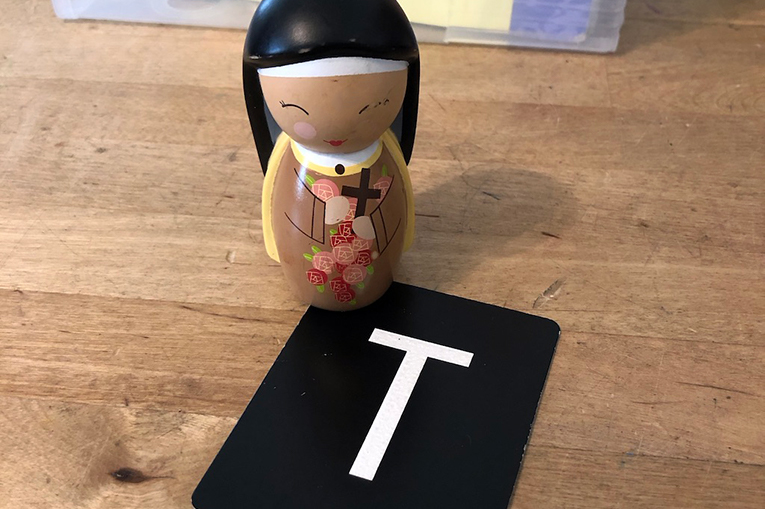
Some of my kids easily remember what they learn, while others need a little help, and still others need intensive, daily practice — even for things they learned months ago.
But we’ve found that no matter the extent of the problem, the same principles and activities help. That’s music to this busy mama’s ears!
How We Remember What We Learn
*This post contains affiliate links for Memoria Press products. No other affiliate links are present. All opinions are my own.
My friend Cheryl Swope, author of the Simply Classical curriculum, shared this article with me a few years ago. It completely changed my perspective on learning for long-term retention!
To learn something well, our children have to spread out their practice over time, practice what they know at the same time as what they don’t, and they need to practice pulling things from their memory.
It’s also important for them to work with concepts in different ways: written, oral, and multi-sensory. This allows them to think about it in different ways.
So, in practical terms, our children need to:
- Practice in different ways
- Review multiple times a week
- Practice well-known facts/concepts with lesser-known ones
- Try pulling facts/concepts from memory rather than always seeing it in front of them
All of this works together to help our children remember what they learn.
“…memories are formed as the residue of thought. You remember what you think about, but not every fleeting thought — only those matters to which you really devote some attention.”
DANIEL T. WILLINGHAM
Helping 5-7 Year Olds Remember What They Learn
At this age, we focus on phonics, reading, handwriting, and basic math facts.
Even with a strong focus on these foundational subjects, most young children will go through cycles where they seem to forget everything they’ve ever learned. A week later, it’s all back.
We’ve found frequent, weekly review helps ease this cycle, and makes it shorter when it does hit.
For kids whose memory issues run deeper, we use daily review and I also know of students who need to review twice a day in separate sessions.
But how do we fit in this extra practice? It’s far easier than I thought, and even gives opportunities for independent work!
Written Review
Trace flashcards
Put flashcards into a sheet protector and have your child trace them with a dry erase marker. For math facts, they can trace the side with the full fact first, and then turn it over and trace the fact only, adding the answer on their own.
Dictate sounds, letters, words, or math facts
My kids love to use a dry erase board for this! Sidewalk chalk is another favorite.
When using dictation, it helps to create a loop. One day I’ll give the sound and ask them to write the letter. Another day, I’ll give the letter and ask them to write the lowercase version of it. Yet another time, I’ll ask for the uppercase.
For math, you can dictate a full fact one day and then another day dictate the fact and have them write the answer after it.
Use sheet protectors for practice pages
This is especially helpful for reluctant writers! Dry erase markers are easier to use since they don’t have as much friction as a pencil. Plus, the kids enjoy erasing it when they’re done.
If a child struggles with writing stamina or overwhelm, I mark which rows I want them to do. But be sure to do the entire page, even if it takes a couple of rows per day to complete it.
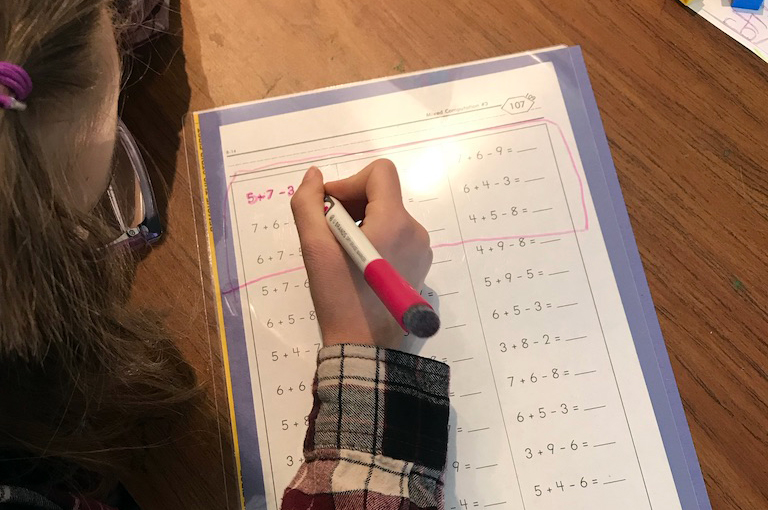
Oral Review
Start a recitation habit
My 6 year old starts each day by reciting her alphabet and then we go back through and say the sounds for each letter she has learned so far. The same can be done with math facts.
When she officially starts Kindergarten this March, we’ll add Memoria’s Kindergarten Recitation to learn important things every child should know (their address, phone number, continents, oceans, skip counting, simple history, etc.)
Multi-sensory Review
Play Go-Fish or Memory
My friend Christine introduced me to this idea and it has been a true winner here. I simply cut index cards in half and made two cards for each letter, vowel team, or spelling word we were learning.
This can also be used for math facts! When playing Go-Fish, ask, “Do you have something that equals [whatever number card you’re holding]?” For memory, have your child pull from one layout with fact cards and match it to another layout with answer cards.
When using these games for spelling words, each person spells their word whenever they get a match. We do the same for sight words.
If using for math, you can have them recite the full fact before adding the cards to their pile.
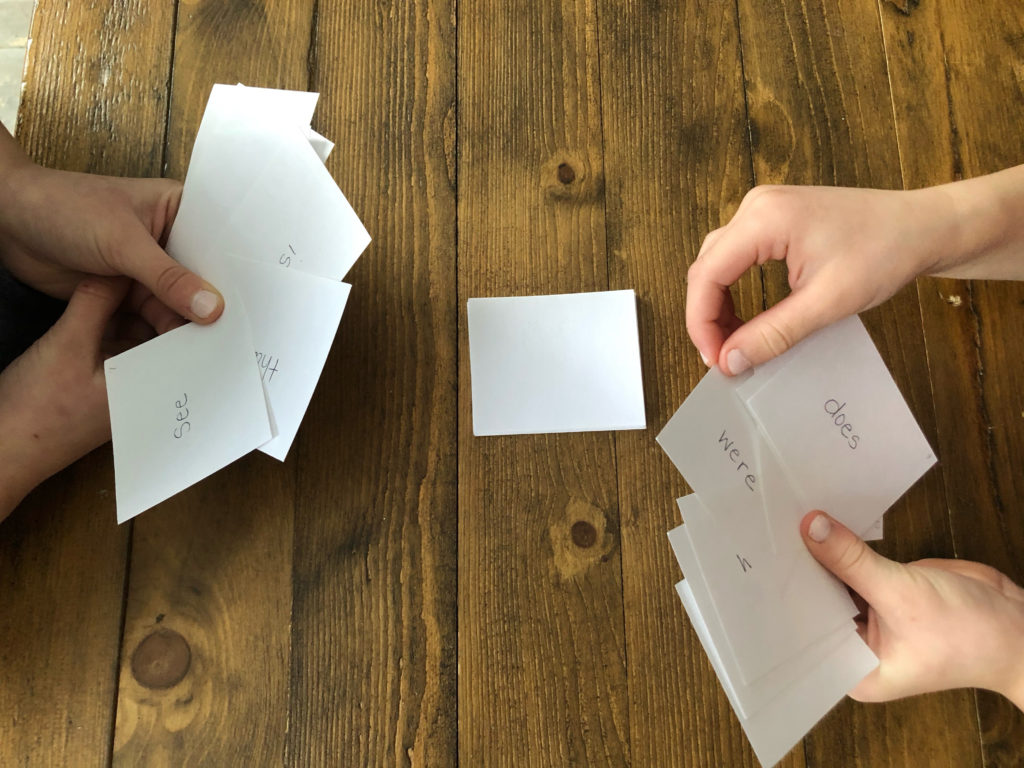
Do a Three-Period Lesson
I learned this one in our Montessori days and I still love it. You can use flashcards, sandpaper letters/numbers, tiles, or handwritten index cards.
- Place three cards on the table and point to each one, naming what is on it. Repeat if necessary.
- Ask your child to show you a specific card. Repeat until you have pointed to each card.
- Point to a card and ask your child what is on it. If he’s able to answer, repeat with the next card. If not, go back to the card or stage he was successful with and repeat that. Then stop the activity for the day.
If they’re successful with all three cards, you can start again with three more. But I don’t recommend doing more than three rounds at a time.
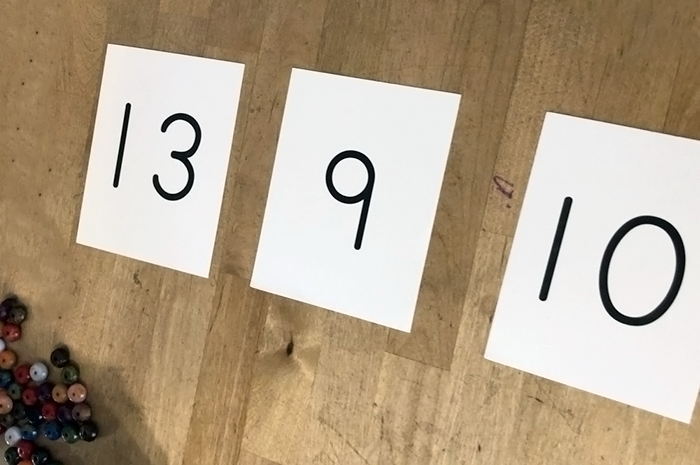
Scavenger Hunt
Another favorite here! I hand my daughter one card for each letter she’s learned. She then goes through the house, finding objects that begin with those letters.
When she finds an item, she leaves her card on it. After every card has a home, she takes me through the house and shows me what she found.
For math, you could give your child number cards so they can label groups of items.
In addition to these activities, we get lots of ideas from our Memoria Press and Simply Classical curriculum.
Keep Track with Review Loops
To keep things easy on me, but varied for the kids, I find it helpful to write down an activity loop I can refer to each day.
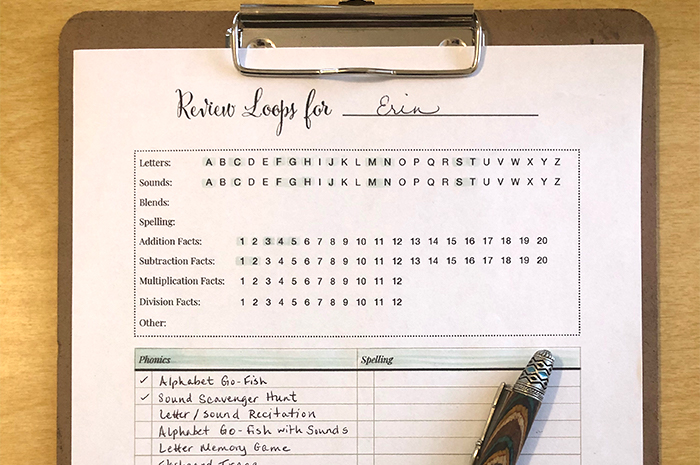
Because we use a loop, rather than set days, we can pick up where we left off when we miss a day due to holidays or sickness (or life!).
As in traditional loop schedules, you can use a particular activity more often, simply by writing it down more often in your review loop.
On the bottom of my tracker, I have a Mom’s Notes section to write down things I notice, what they’re struggling with, etc.
This helps me focus on the right concepts in our review activities.
Don’t Assume They Know It
One of the biggest mistakes I’ve made as a homeschooler is assuming my kids know something well — only to discover later that they don’t.
At the same time, we don’t want to go overboard and practice things they always get right!
I use a simple guideline to avoid these extremes:
If a child shows 90% mastery of a concept, it can be reviewed weekly. Everything else gets reviewed daily.
If they start struggling with a weekly item, you can add it back to the daily review.
A Foundation for the Future
In many ways, this type of review is different from how our children will study when they’re older, but the principles will stay the same.
Using these principles now and setting up a consistent routine not only helps our children remember what they learn, it models good study habits for them.
They won’t be blindsided by study when they’re older, or fall easily into the cram-pass-forget cycle. They’ll have a well-established habit of practice and review.
Now that my older kids are teens, I wish I had started review loops much sooner!
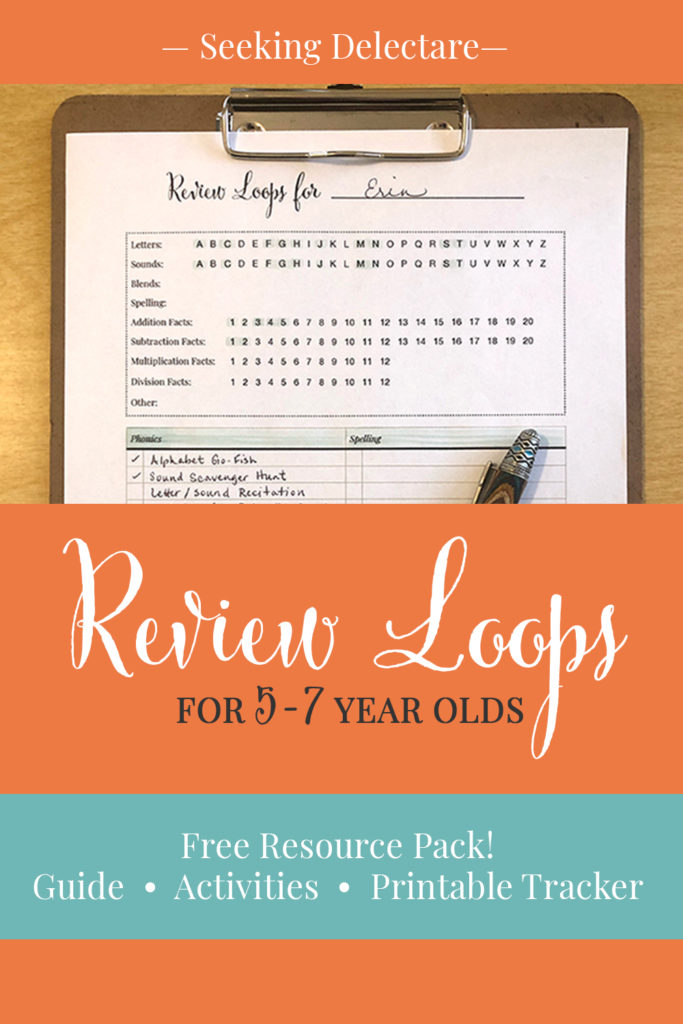
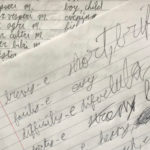
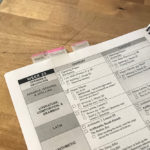
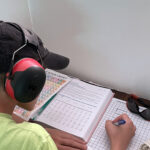
Leave a Reply